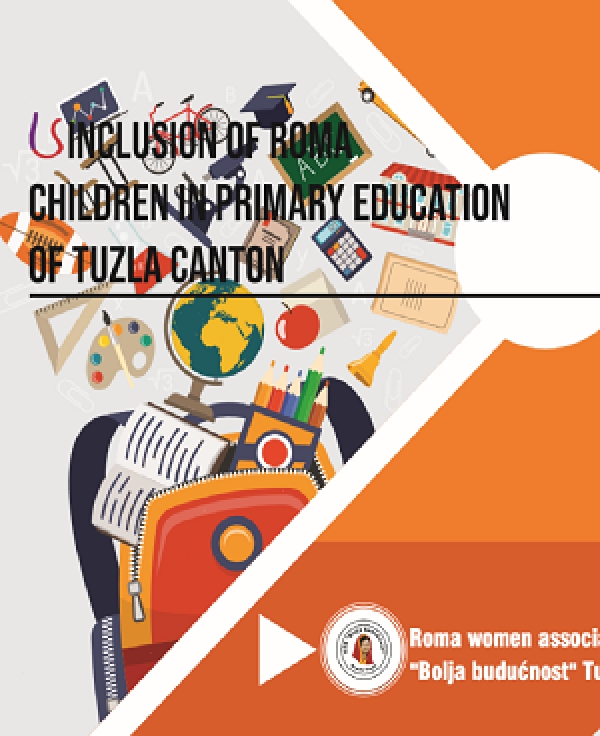Every child has the right to an education that should be formulated to develop their unique personality, skills, abilities to learn and other abilities, dignity, self-respect and confidence. Presence of Roma children in the education system of the Tuzla Canton (TC) is not comprehensive yet. Besides of several the international and domestic standards taken that guarantee availability, accessibility, acceptability and adaptability of the education system for all children, a majority of the Roma children encounter with serious problems in the approach and sustainability in the primary education. Poverty, discrimination, inadequate preparation for school, not knowing the language, insufficient motivation of parents for their children’s education, especially girls, non-flexibility of the education system towards the needs of the Roma children, insufficient education of the teaching staff for work with the Roma children are only a few of the reasons to which we point in this document and which affect to a large number of the Roma population not to enrol or to leave primary education.
The conclusion of the document points out that shifts towards a better approach in education are possible only through wider and coordinated social intervention that is directed to removal of the existing deficiencies and application of affirmative inclusive measures.
The policy paper id developed as part of the regional project "For active inclusion and rights of Roma women in western Balkan II supported by Austrian development agency through CARE International Balkans.

